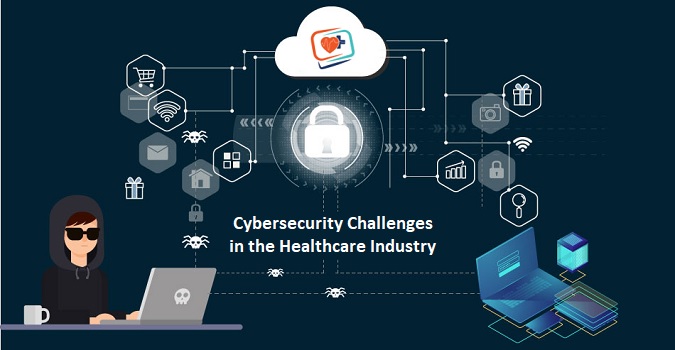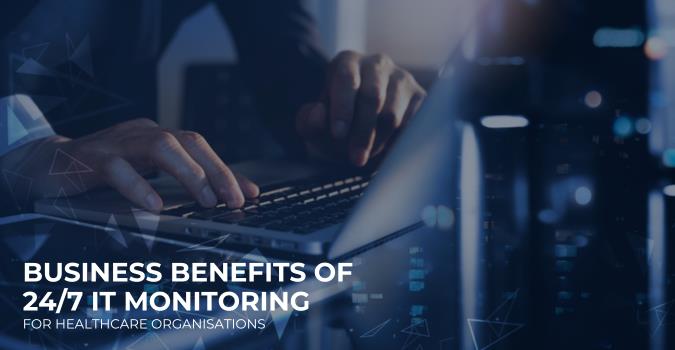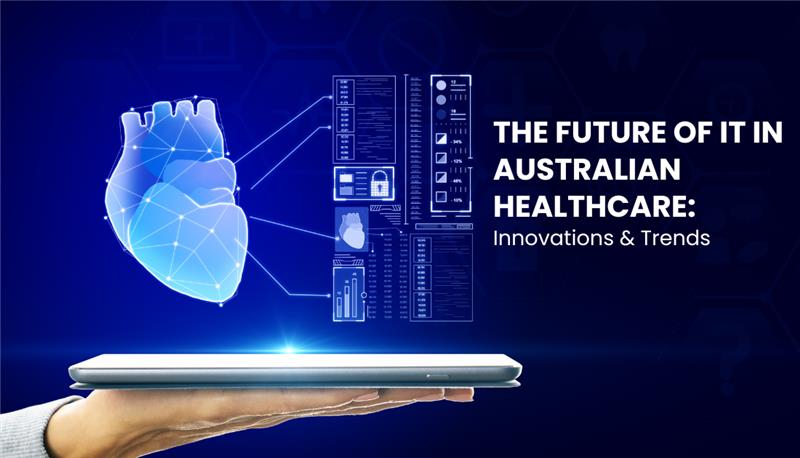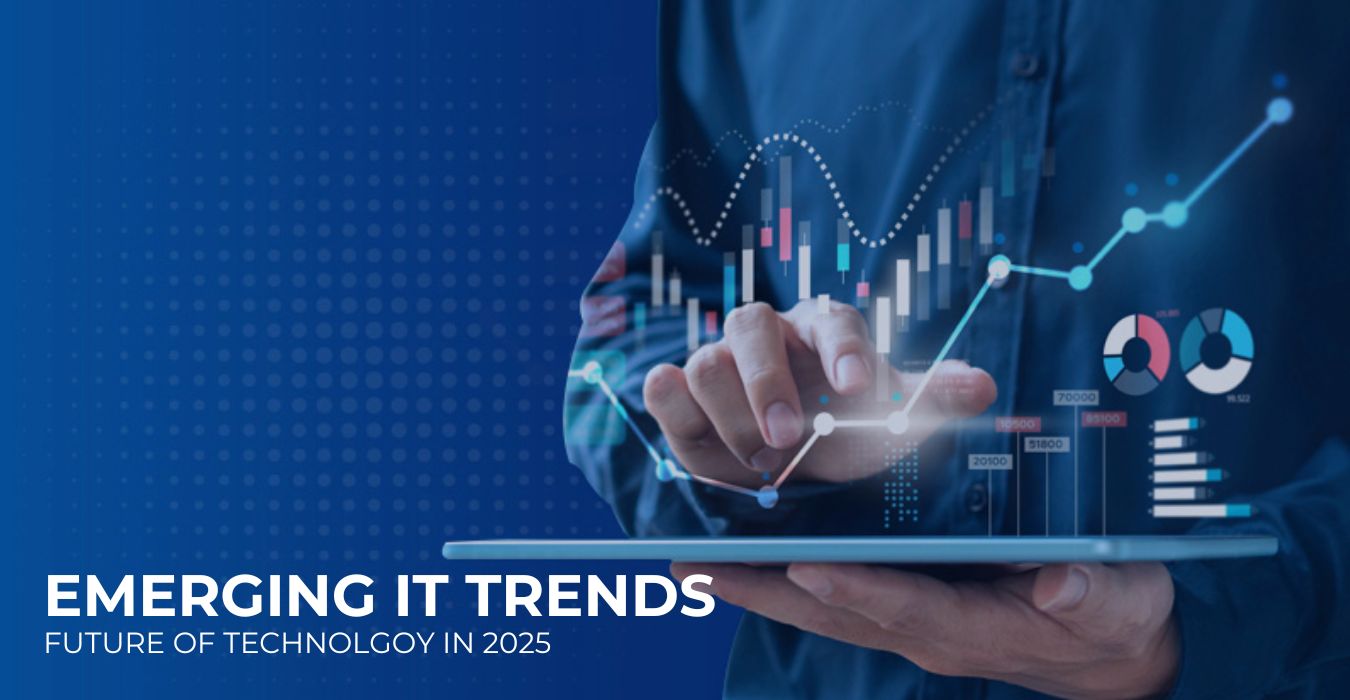Healthcare organisations rely on robust IT systems to manage patient records, facilitate telemedicine and support…

Top 5 Cybersecurity Challenges in the Healthcare Industry
The healthcare industry in Australia has become the most targeted sector by cyber criminals. When there is a data breach or cyberattack, patient data can be stolen or even altered by cyber attackers, the results could be worse than one can imagine. Cybersecurity challenges are increasing day by day and could change the clinical test results, delaying surgeries and treatments, and more, which could be life-threatening.
When it comes to patient health, cybersecurity must be prioritized and medical centers must have to take proper measures to safeguard important patient data. The malicious attacks may not always come from outside the clinic but insiders could also be a reason behind cyber-attacks. So, it is essential to know the different cyber threat types targeting the healthcare industry. If the cybersecurity challenges in healthcare are not timely addressed or prevented, it may affect the reputation of the hospital and may cost the patient’s life.
Reason Behind the High Number of Cyber Threats
The complete dependency on the Internet globally for even general things has made cyber security the need of the hour. Now, if we look at the amount of sensitive data the Internet carries, from your home address to your credit card details, cybersecurity becomes necessary. In the cyber world, more and more data breaches and cybersecurity problems are increasing at a disconcerting rate.
The situation become worse after the covid-19 pandemic. The data breaches increased by 16% in 2021 (first half). The increasing number of cyber-attacks indicates that cybersecurity becomes a major challenge, especially for the healthcare industry.
Top 5 Cybersecurity Challenges for the Healthcare Sector
The assortment of poor cybersecurity practices, sensitive data storage, and despair to maintain business continuity at all costs, makes the healthcare industry a prime target for hackers. There are five (5) major cybersecurity challenges in the healthcare industry that are listed below. These cyber-threats pose the highest risk to patient and healthcare data security.
Ransomware Attacks
Ransomware is a major problem now in the digital world. In the last year, there were an unusual number of ransomware attacks happened to healthcare, and that trend is projected to continue into 2022. Ransomware hacks the user’s sensitive data and restricts their access to it until a ransom amount is paid to the hackers.
The ransomware attacks affect healthcare organizations and infect hospital systems with malware and make patient data inaccessible until the clinic pays them the ransom they demanded. In general, cyber attackers use phishing emails or trojans to perform the attack. Doppel Paymer, Clop, Bit Paymer, Conti, DarkSide, and many more are the main ransomware variant types that remain active in the cyber world. So, a close eye on ransomware attacks is a critical aspect for businesses.
IoT Attacks (Internet of Things)
There are multiple healthcare cybersecurity challenges and the Internet of Things (IoT) is the most vulnerable to data security threats. Every digital, mechanical, computing smart device that can send data over the internet network are known as IoT such as; PCs, laptop, and mobile phones.
To access your device that contains your important data, cyber attackers utilize devices surrounding you, such as wearable smartwatches, baby monitors, smart fridges, or smart lights. In the modern era, the IoT industry is the pivotal target for cyber criminals to intrude on the sensitive data of people. In the upcoming years, as the usage of devices increases can also open a broad room for attackers to compromise data security and utilize them for malicious purposes.
Cloud Attacks
Cloud security is one of the major cybersecurity challenges for healthcare organizations. With more healthcare organizations embracing cloud solutions to store data, cyber-attackers have also begun to target cloud services in the healthcare industry. The attackers employ techniques like brute force login attempts and phishing attacks and manipulate weaknesses in the healthcare cloud security procedures. Complying with the HIPAA rules is mandatory to stay away from cloud attacks.
Cloud computing is revolutionized the physical world of data storage. It is utilized for storing healthcare organizations’ sensitive data. The adoption of cloud computing has reduced the cost and increased efficiency, and also opened chances for data security breaches. The primary cause for compromised data security is the lack of encryption, authentication, and inappropriate configuration of the cloud setups. Healthcare organizations need to maintain considerations for cloud security and data protection, to keep sensitive information protected.
Phishing Attacks
Phishing attacks are one of the emerging security threats, that is usually used by cybercriminals to misguide users into disclosing invaluable details like medical records, usernames, passwords, bank details, etc. Phishing attacks are carried out using targeted communication mediums, i.e. email, messaging, etc. Cybercriminals send emails or messages with links to malicious websites and urge people to click on them. When the user clicks on the link, they may mistakenly end up downloading malware that paves way for the criminals to access sensitive information.
Whenever you open your email account, you might see a spam folder that contains a lot of emails that the platform recognizes as a threat to your data security. These spam emails contain many phishing attacks that your mailing partner identifies and warns you about the potential security threat that it carries. Yet, some of the communications still make it to your mail inbox where you might fall into a trap.
Blockchain Attacks
Digital currency or e-wallets are the most premium target of cyber-attackers. The advancement of this new technology has revolutionized physical currency yet has posed numerous major challenges to cybersecurity. Multiple blockchain attack variants such as Eclipse, Poly, DDOS, and Sybil created the headlines including a major vulnerability to digital wallets. This is the primary cause why blockchain technology is striving to enhance its cloud security with effective measures.
Cybersecurity Best Practices for Healthcare Providers
There are five (5) major challenges of cybersecurity that the healthcare industry encounters, let’s learn about the cybersecurity best practices for healthcare providers.
Use Strong Passwords
Always set strong passwords that are around 15 characters long with special characters, numbers, and letters must be created mandatory. This could be one of the foremost measures in the process of securing important patient data. Strong passwords that are not easily assumed will help keep cyber criminals out and stop data breaches.
Use Patches and Security Updates
In most circumstances, cyber-attackers take benefit of unpatched vulnerabilities in software and use them. It is a useful approach to update software whenever there is an update and apply patches to operating systems (OS). Patching known data security vulnerabilities will help stop healthcare organizations from becoming victims of cyberattacks.
Use Antivirus Software and Ensure that it Works
Anti-virus software will scan all the files you acquire and keep malicious files away. Updated antivirus software is required for protecting healthcare organization networks and to ensure malicious files do not affect the network.
Control Physical and Network Access to Health Data
To prevent cybersecurity problems, patient data must not be made available to all employees in a hospital and access has to be restricted to only authorized persons. It is essential for healthcare organizations to adopt zero-trust practices and ensure patient data is not openly available to all employees.
Phishing Awareness
Phishing attacks are more typical in the healthcare industry and attackers perform cyberattacks by sending phishing emails first. These emails are sent to acquire access to important patient information like medical records, user names, credit card details, addresses, and more. Healthcare organizations can the phishing attacks by educating their employees on how to identify and report phishing emails. It is important to report phishing emails as soon as possible.
The Bottom Line
To strengthen cybersecurity, healthcare organizations must adopt the above-mentioned practices, start educating their employees about cybersecurity threats and take Cybersecurity experts’ help to protect sensitive data from malicious attacks. If you are looking to protect your data, no need to look further. MedicalIT.Services provide AI-Based Healthcare Cybersecurity Solutions with health check features to enhance your network security. Contact us to get a free one-hour cyber security consultancy.
Related Articles:
How To Create A Holistic Cybersecurity Strategy For Medical Practices?




